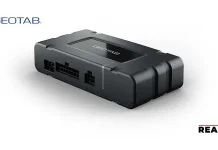miR Scientific, LLC announces the miR Sentinel Prostate Cancer Test is now commercially available in the United States, Puerto Rico and select international markets. miR Sentinel™ is a novel, urine-based, molecular test that analyzes small non-coding RNA using a proprietary biostatistical algorithm. The miR Sentinel Test assesses the risk of aggressive prostate cancer and is intended to aid in the clinical management of men >45 years of age at risk for prostate cancer.
Also Read: BTL Aesthetics Introduces a New Emsculpt Neo Edge Applicator for the Lateral Abdomen
The results of a recent clinical study performed at multiple sites within the US and Puerto Rico were presented at the 2022 American Urological Association’s Annual Meeting. In the study cohort of ~1100 men, the miR Sentinel™ Test was shown to identify molecular evidence of prostate cancer in at-risk men with 98.5% sensitivity and distinguish clinically non-significant (nominally No Pathological Evidence of Prostate Cancer and Grade Group 1), from clinically significant prostate cancer (nominally Grade Groups 2-5) with a prognostic sensitivity of 83% 2.
“We believe that the miR Sentinel Test offers patients and providers a non-invasive means of accurately assessing a man’s prostate cancer risk, which could potentially reduce unnecessary biopsies and biopsy-related complications in men with low-risk of clinically significant prostate cancer, while prioritizing diagnostic and treatment resources to those men that potentially harbor clinically significant prostate cancer,” said Sam Salman, Chairman and CEO of miR Scientific. “This aligns with miR Scientific’s vision to revolutionize prostate cancer disease management by improving accessibility and accuracy of the tools used to assess each man’s personal risk of aggressive disease.”
In a subset analysis of men from this cohort where the findings of TRUS and MRI-guided biopsies disagreed on the presence of prostate cancer, the miR Sentinel™ Test was able to correctly identify 99% (71/72) of men found positive by either biopsy type while identifying all but 4 of 234 cases where prostate cancer was found by either TRUS or MRI resulting in a false negative rate of 1.7%. Additionally, 87% of men with PSA levels <3 found to have pathologic grade group 2 through 5 upon biopsy were identified by the miR Sentinel™ Test as having molecular evidence of intermediate or high risk of aggressive disease2. These findings suggest that the miR Sentinel™ Test may represent a significant improvement over the current standards of care and other tools being used to detect and classify prostate cancer.



